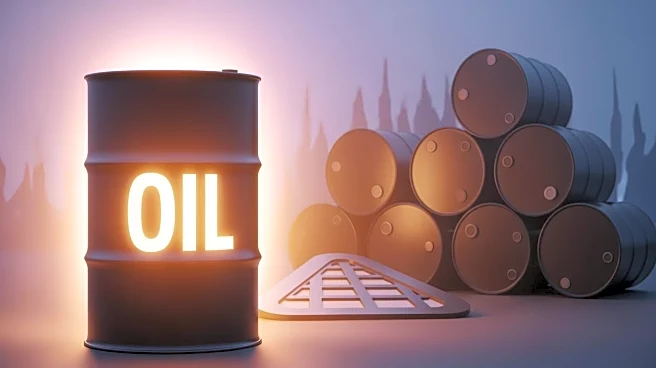What's Happening?
The global oil market is experiencing uncertainty with rising inventories and potential oversupply. The IEA reports increasing oil stockpiles since August, while Bloomberg notes high levels of oil-in-water transport. US shale production faces challenges
due to environmental pressures and rising costs, potentially reaching $95 per barrel in the next decade. China's stockpiling activities further complicate demand assessments, suggesting that real demand may be lower than reported.
Why It's Important?
The potential oil glut could lead to lower prices, impacting oil-dependent economies and industries. Reduced investment in oil production may result in future supply shortages, risking energy insecurity. The situation underscores the need for diversification in energy sources and increased focus on renewable energy to mitigate reliance on fossil fuels.
What's Next?
Oil-producing countries and companies may need to reassess their strategies, balancing production levels with market demand. Investment in alternative energy sources could become more attractive as oil prices fluctuate. Policymakers might consider regulatory measures to stabilize the market and encourage sustainable energy transitions.
Beyond the Headlines
The environmental implications of continued oil production include increased greenhouse gas emissions and ecological degradation. Legal challenges may arise as countries navigate international agreements on energy production and climate change. Culturally, there may be a growing movement towards energy conservation and sustainable practices.
















